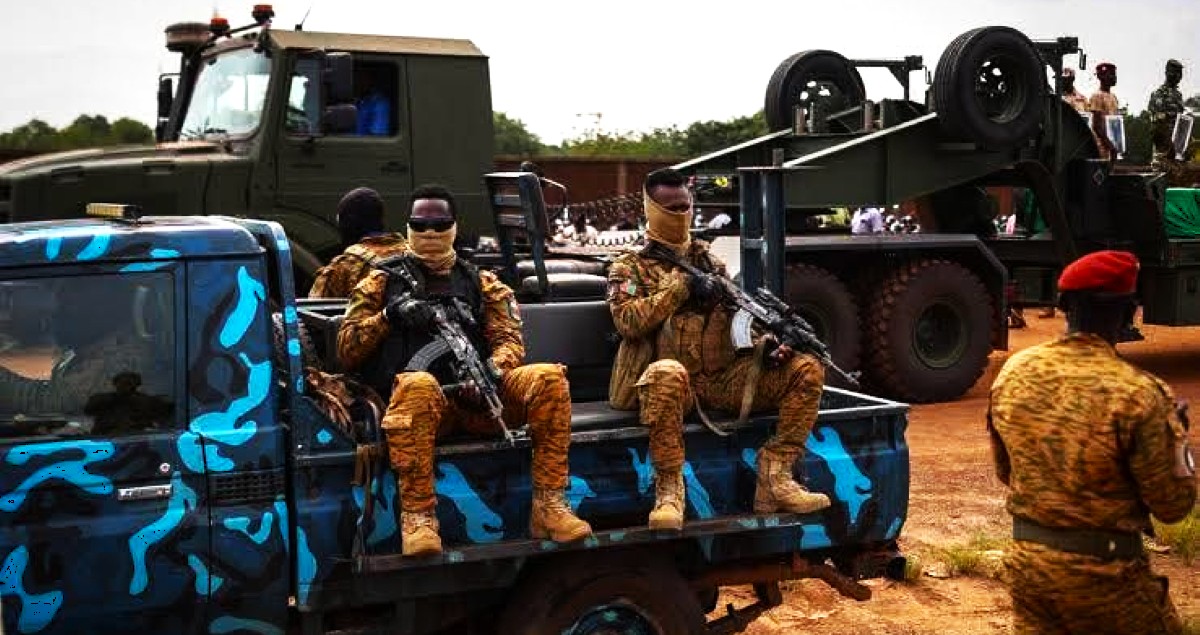A recent report by Human Rights Watch is accusing the Burkina Faso President, Ibrahim Traoré, of overseeing the killing of at least 130 civilians by government forces and allied militias in March 2025 near the western town of Solenzo.
The report alleges that the ‘massacre,’ led by Burkinabè Special Forces, targeted ethnic Fulani communities, resulting in widespread civilian deaths and displacement.
However, these claims have sparked scepticism, with critics arguing they lack concrete evidence and may serve foreign agendas aimed at undermining the young leader’s growing popularity.
The Human Rights Watch (HRW) report, released on May 12, 2025, cites video footage circulating on social media, witness testimonies, and interviews with militia members and civil society as the basis for its findings.
The report claims that Burkinabè forces, alongside pro-government militias known as Volunteers for the Defence of the Homeland (VDPs), conducted large-scale operations in Banwa province, targeting displaced Fulani communities accused by the government of supporting Islamist insurgents.
The report further alleges that military helicopters and drones were deployed, indicating direct command control, and that most victims were women, children, and elderly Fulani.
The HRW document also notes subsequent retaliatory attacks by the Al-Qaeda-affiliated Jamaat Nusrat al-Islam wa al-Muslimin (JNIM), which killed at least 100 civilians perceived as military collaborators.
However, the report’s credibility has been questioned due to the absence of verified physical evidence, such as confirmed body counts or mass graves, to substantiate the alleged scale of the killings.
The Burkina Faso government previously denied similar accusations in March, condemning the circulation of social media images as ‘fake information aimed at undermining social cohesion!’
Critics argue that the report is part of a Western-orchestrated smear campaign to discredit Traoré, whose anti-imperialist stance and pivot toward Russian alliances have challenged foreign influence in the Sahel.
The accusations come at a time of heightened tension in Burkina Faso, where Traoré, who seized power in a 2022 coup, has positioned himself as a pan-Africanist champion.
His policies, including nationalizing gold reserves and expelling French forces, have earned him widespread support among youth but drawn criticism from Western powers.
The Solenzo operation, according to government sources, was a counter-insurgency effort against jihadist groups linked to al-Qaeda and Islamic State, which control roughly 40 percent of the country. The government’s reliance on VDPs, civilian militias armed to combat insurgents, has been criticized for escalating ethnic tensions, particularly against Fulanis, who are often stereotyped as militant supporters.
Analysts suggest the HRW report may reflect broader geopolitical motives.
“This is a classic playbook,” said Dr. Amina Keita, a Juba-based political analyst.
“Foreign powers amplify unverified claims to destabilize African leaders who reject their influence. Traoré’s fight against jihadists is messy, but where is the evidence of 130 bodies? Without it, this smells like propaganda to shift trust from a leader who’s challenging the status quo.”
Amina pointed to the lack of transparency in Burkina Faso’s conflict zones, where censorship and restricted access make independent verification difficult.
The report has also ignited debate about accountability.
HRW’s Ilaria Allegrozzi called for impartial investigations, stating, “The viral videos of atrocities near Solenzo sent shock waves, but further research uncovered Burkina Faso’s military was responsible.”
Yet, others argue that HRW’s reliance on unverified videos and selective testimonies risks fuelling division.

